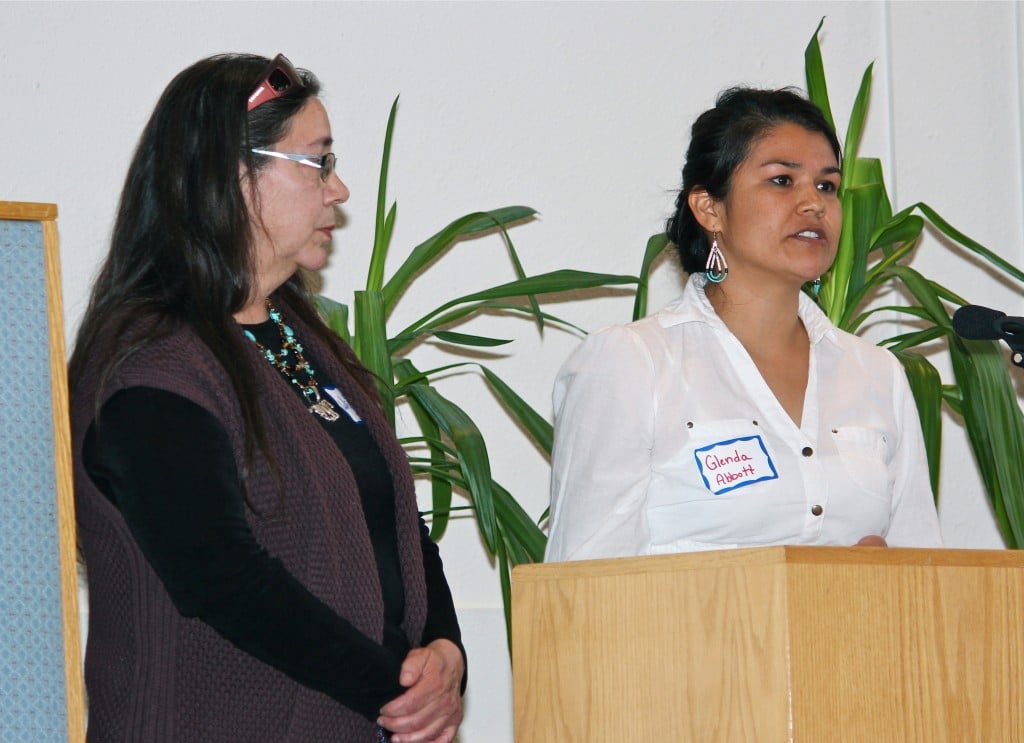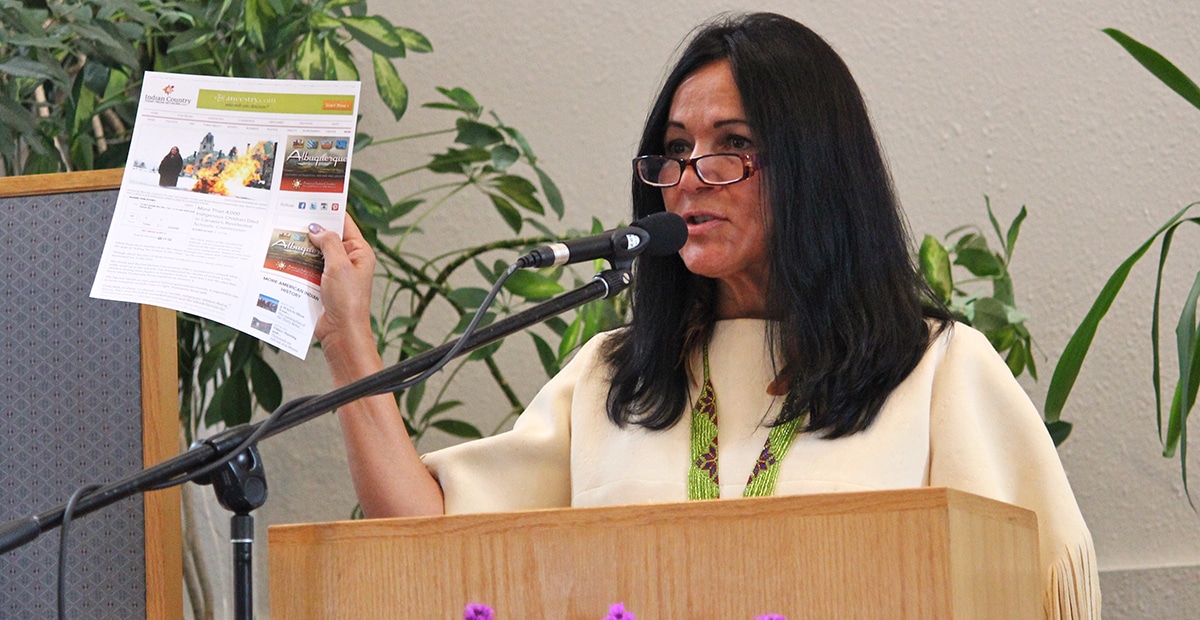Members of the Anglican Diocese of Saskatoon joined other denominations on Saturday, April 18 for a day-long ecumenical response to the ongoing crisis of missing and murdered Indigenous women and girls.
Taking place in the city’s Mayfair United Church, Voices of Our Sisters: Standing Together in Hope brought together a range of speakers, and included panels and discussion along with musical performances.
Approximately 200 people attended throughout the day, with the majority non-Indigenous. Among those in attendance were Anglican Bishop of Saskatoon David Irving and diocesan Truth and Reconciliation Commission representative and Aboriginal outreach co-ordinator Mary-Ann Assaily, with the latter helping to organize the event.
“Locally, we are hugely organized around advocacy of this issue [of missing and murdered Indigenous women],” Assaily said, noting that there was increasing recognition about the impact of colonialism and the Indian Act in precipitating the crisis.
The event kicked off at 8 a.m. sharp with a traditional pipe ceremony followed by a series of presentations. The first featured speaker was Professor Winona Wheeler, who teaches native studies and human rights at the University of Saskatchewan.
Bishop Irving noted of Wheeler’s presentation: “A lot of people said afterwards that they really weren’t aware of how within First Nations that all worked—the looking after the young people by the grandparents, and how when the government and the churches stepped in to [teach]…the young people…it changed their whole community.”

Wheeler and the next speaker, Wanuskewin Heritage Park visitor services manager Glenda Abbott, each shared personal stories and offered insight into circle teachings.
Perhaps the most heartbreaking presentation came from Pauline Meskego, the mother of Daleen Bosse, a 25-year-old University of Saskatchewan student and mother who was murdered in 2004.
The trial of Bosse’s killer, who was sentenced to life in prison for second-degree murder in 2014, received substantial media attention and the audience was familiar with the case, leaving many in an emotional state as Meskego displayed photographs of her daughter from infancy until the last days before her murder.
Her presentation also touched on the financial impact that searching for Daleen has had on Bosse’s family, and the struggles of her brothers with alcoholism resulting from the prolonged search and disturbing details about her fate.
“The story was so close to everyone, highly personalized, that we went through a lot of Kleenex,” Assaily said.
With a drum and strong voice, Abbott taught audience members to sing The Strong Woman Song, a tune created by inmates at the Prison for Women in Kingston, Ont., to protest solitary confinement.
The afternoon saw further contributions from a panel that included:
- Darlene Okemaysim-Sicotte and Myrna LaPlante, co-chairs of the Iskwewuk E-wichiwitochik (Women Walking Together) network that seeks to raise awareness of missing and murdered Aboriginal women;
- Monica Goulet, Aboriginal relations consultant for the Saskatoon Police Service;
- Marcel Petit, producer and director of the 2008 film Hookers—A Documentary; and
- Kiona Sanderson and Maggie Eastman, Grade 10 students from Oskāyak High School who have extensively researched the issue of missing and murdered Indigenous women.
The audience then broke into 12 groups to discuss what they had learned and how churches could respond. The day closed with a performance by the drumming group Young Thunder.
Along with Anglicans from across Canada, members of the Diocese of Saskatoon will continue their focus on Indigenous issues going forward with the closing of the Truth and Reconciliation Commission and the church’s subsequent #22Days project.
Interested in keeping up-to-date on news, opinion, events and resources from the Anglican Church of Canada? Sign up for our email alerts .

